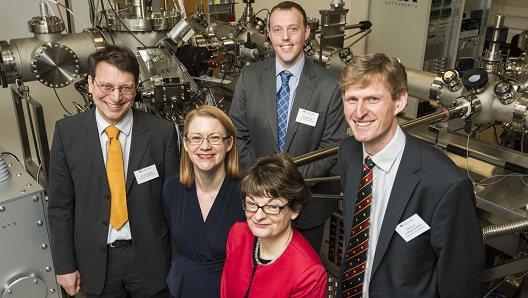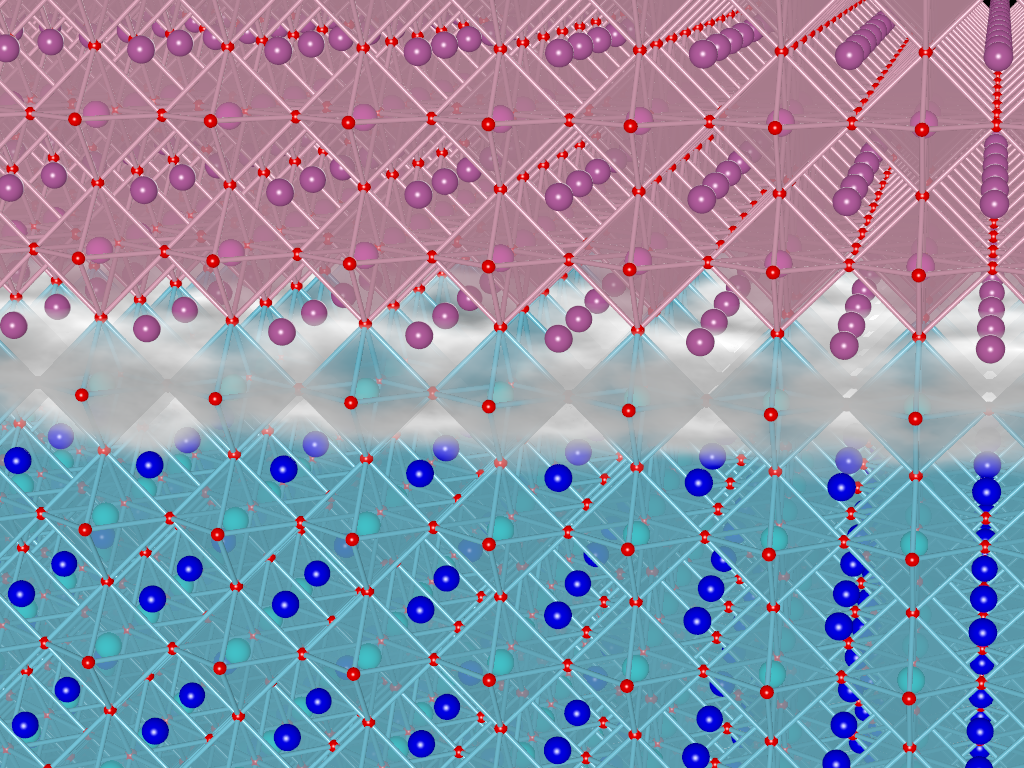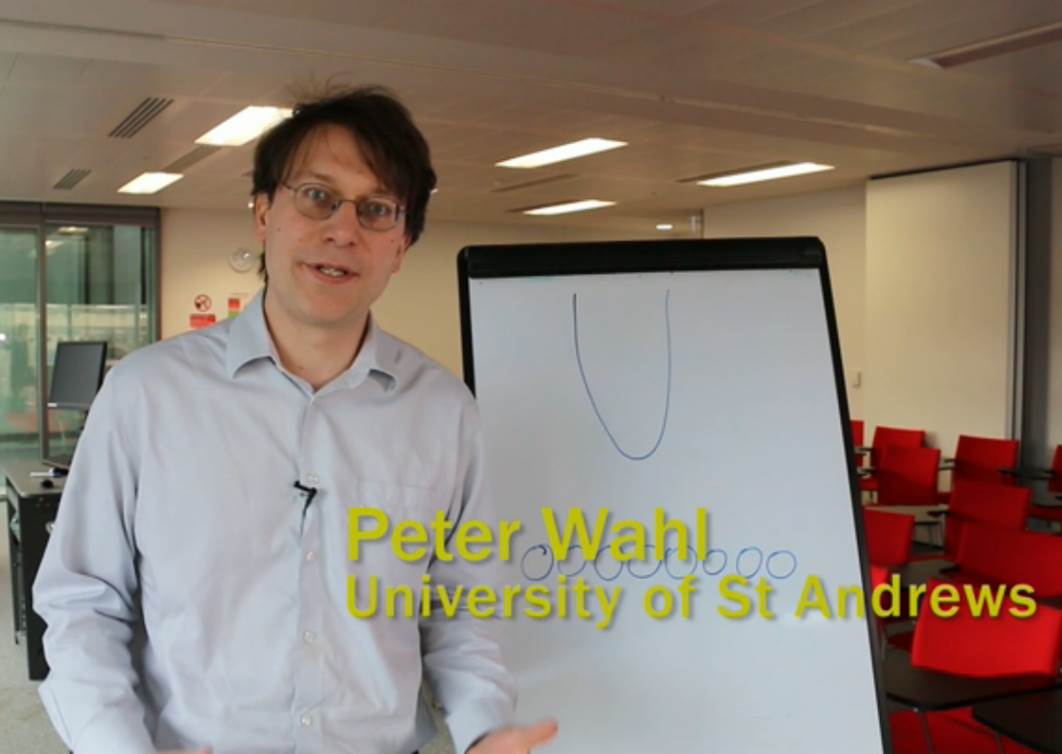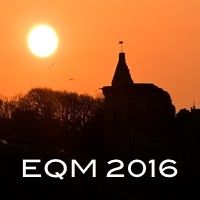On Thursday, 8th of December, the Minister for Further Education, Higher Education and Science, Shirley-Anne Somerville, and the Principal of the University of St Andrews, Professor Sally Mapstone, opened a new center for Designer Quantum Materials. At the core of this facility is a reactive-oxide molecular beam epitaxy system, funded by the Engineering and Physics Sciences Research Council (EPSRC, EP/M023958/1).

Dr Peter Wahl with Minister for Further Education, Higher Education and Science Shirley-Anne Somerville Principal Prof Sally Mapstone Dr Philip King and head of School Prof Graham Turnbull
The Minister for Further Education, Higher Education and Science Shirley-Anne Somerville today (8 December 2016) officially opened a state-of-the-art centre for Designer Quantum Materials at the University of St Andrews. The centre, the first of its kind in the UK, is aimed at the creation of new materials which do not exist in nature. Almost like building LEGO structures with single atom building blocks, the Designer Quantum Materials lab allows the composition of a material to be changed between each layer, effectively making entirely new “supermaterials” – combinations and structures which would be impossible to create by any other means. At the heart of the facility is a molecular-beam epitaxy (MBE) system which can custom engineer materials which can be used in a host of applications from super-efficient energy distribution to high performance computing and sensing.
Press coverage:
 Our new center of designer quantum materials is featured on BBC today, see "Building the future one atom at a time" and in radio on “Good Morning Scotland”.
Our new center of designer quantum materials is featured on BBC today, see "Building the future one atom at a time" and in radio on “Good Morning Scotland”.




